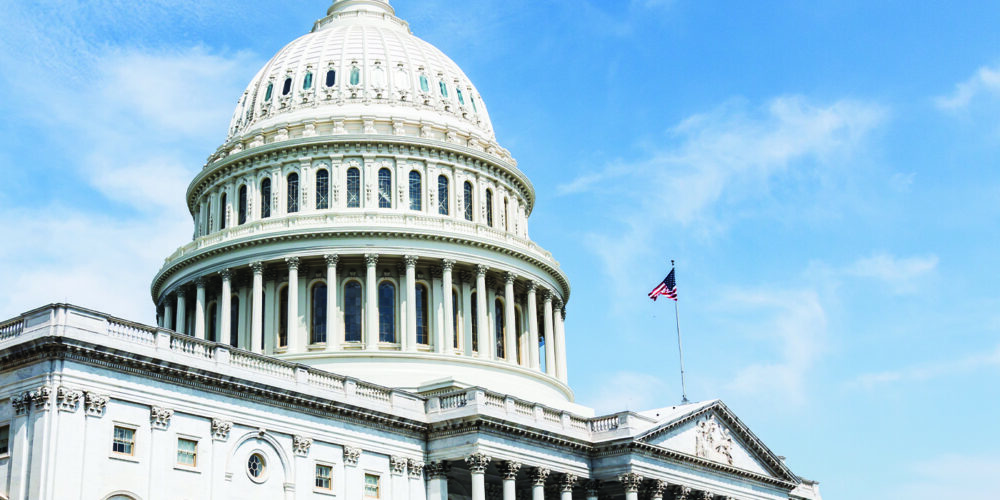WASHINGTON, D.C. – The U.S. House Oversight and Government Reform Committee’s Subcommittee on Regulatory Affairs, Stimulus Oversight and Government Spending recently held a hearing titled “Volt Vehicle Fire: What Did NHTSA Know and When Did They Know It?” The hearing comes after the National Highway Traffic Safety Administration (NHTSA) announced an end to its investigation into Chevy Volt battery fires. The Automotive Service Association (ASA) released details of the hearing earlier this week.
Having completed crash tests of vehicles and battery components, and the fact that it was an emerging technology, NHTSA decided to open an investigation into the Chevy Volt batteries without actual field tests demonstrating problems. According to NHTSA, its conclusions from the investigation are that “no discernible defect trend exists and the vehicle modifications recently developed by General Motors reduce the potential for battery intrusion resulting from side impacts.” NHTSA also reported that it does not believe that Chevy Volts or other electric vehicles pose a greater risk of fire than gasoline-powered vehicles.
Witnesses at the hearing included the Honorable David L. Strickland, NHTSA administrator; Daniel Akerson, chairman and CEO of General Motors; and John German, a senior Fellow and program director at the International Council on Clean Transportation.
The investigation was initiated by NHTSA after it had completed standard tests and then left a Chevy Volt vehicle in a salvage storage area where it was found burnt three weeks later. Strickland made the following remarks regarding the Volt fire:
“Once the Volt battery was identified as the source of the fire, NHTSA proceeded to determine whether the fire resulting from the May crash test was an anomaly and, if it was not, whether GM and other manufacturers had protocols in place for assessing or managing the risks. In September, we conducted a second side pole test of a Volt. The test vehicle was fitted with additional cameras and equipment to monitor post-crash events. The vehicle was monitored for three weeks after the crash. This second side pole test did not produce any intrusion into the battery compartment and there was no battery damage, shorting or coolant leakage. GM conducted a similar side pole test the same month and that also did not result in any intrusion into the battery pack or fire.”
Strickland went on to say, “In a review of all crash reports in the field involving Chevrolet Volt vehicles, we found no reports of post-crash fires.”
Akerson made the following comments, assuring the committee of the unlikely nature of another post-crash Volt vehicle fire: “Testing conducted by regulators resulted in a fire – in one test seven days later and in another more than three weeks later – after putting the battery through lab conditions that no driver would experience in the real world.”
The conclusion of those testifying at the hearing was that after a thorough investigation, the Chevy Volt fires appeared to be isolated incidents that had taken place after testing and that there are no known field cases of a fire in a Chevy Volt.
Nevertheless, the Committee on Oversight and Government Reform report raised questions about the fire and the subsequent investigation. According to the committee report, released the day of the hearing:
“NHTSA’s true motivations for delaying public notice of the Volt fire investigation and its obstruction of this committee’s investigation are not currently known. However, it is clear that the administration has tremendous incentives to protect the political investment it has made in the company and the vehicle. The president has made the survival of GM a central campaign issue, he has personally endorsed the Volt, and his administration has touted the vehicle as one of the few cars currently produced that can satisfy its proposed fuel economy regulations. Accordingly, the American people have a right to know the exact nature of the relationship between GM and the administration, and the implications this relationship has for public safety.”
To view full testimony from this hearing, as well as the committee report and Interim Guidance for Electric and Hybrid-Electric Vehicles Equipped with High Voltage Batteries, visit ASA’s legislative website at www.TakingTheHill.com.
$78B Pro-Business Tax Bill Passes House, Awaits Senate
The bill aims to reinstate tax incentives for R&D and small business investments, along with other measures.
The U.S. House of Representatives passed H.R. 7024, the Tax Relief for American Families and Workers Act of 2024, with bipartisan support. The bill, now with the Senate's Finance Committee, aims to reinstate tax incentives for research and development (R&D) and small business investments, along with other measures, according to SEMA.
MANN+HUMMEL NA Aftermarket Shows Right to Repair Support
Representatives from MANN+HUMMEL’s North American aftermarket brands recently visited Capitol Hill to express their support for H.R. 906.

MEMA Issues Statement on Tax Relief for Working Families Act
This measure contains the restoration of one year deductibility of research and development expenses, a key legislative priority for the association.

SEMA Urges Members to Support Tax Relief Bill
The Tax Relief for American Families and Workers Act of 2024 benefits specialty automotive aftermarket businesses, according to SEMA.

ASA Endorses Bipartisan Tax Framework
The Automotive Service Association says the legislation is beneficial for independent automotive repair businesses.

Other Posts
Industry Partners Urge Congress to Pass R&D Deductibility Fix
“Congress must restore this tax provision to enhance U.S. competitiveness, job creation and innovation as soon as possible,” said Ann Wilson, MEMA’s executive vice president of government affairs.

Legislators Challenge Vehicle Data Access ‘Double Standard’
Rep. Marie Gluesenkamp Pérez joined other legislators in sending a letter to NHTSA about proposed guidance for implementing the Massachusetts Right to Repair law.

House Passes Bill to Stop EPA Emissions Mandate
The U.S. House passed the “Choice in Automobile Retail Sales (CARS) Act” (H.R. 4468) with bipartisan support.

U.S. House Schedules Vote to Stop EPA Emissions Mandate
The SEMA-supported bill would prohibit the EPA from finalizing federal emissions standards for light- and medium-duty motor vehicles model years ’27 to ’32.




